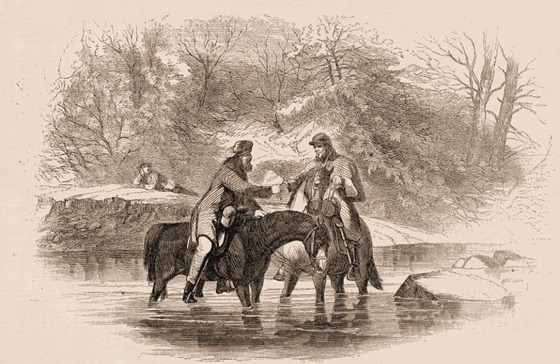ONE of our correspondents, Mr. Oertel, has illustrated one of the few amenities of war, the INTERCHANGE OF CIVILITIES BETWEEN TWO MOUNTED PICKETS on the Upper Rappahannock. When the war first broke out the pickets on either side used to fire at each other on sight, and it gave our officers a good deal of trouble to check the murderous practice. The rule is now the other way. The pickets no sooner find themselves within hailing distance than they begin to converse; and the chat generally ends in an interchange of rations, liquor, and newspapers. This custom is severely reprobated by most of our Generals, but is very common nevertheless. Mr. Ocrtel writes: “During the recent engagement at Fredericksburg it was a most essential precaution to guard against a flank movement by the enemy, and the fords above on the river were vigilantly watched. This important duty was assigned to the Sixth New York Cavalry, who by former experience knew all the fords and roads thereabout well, and they were there by special order of General Burnside, commanded by Lieutenant-Colonel M’Vicar. They are at the post still. The duty is arduous, and one of danger, being at the extreme right, and in sight and within easy reach of the enemy. The pickets sometimes meet, by special agreement, in the middle of the river, first laying down their arms at their respective shores, and in this wise they friendly converse, and exchange such commodities as tobacco and newspapers.”
(Published February 7, 1863, in Harper’s Weekly.)



